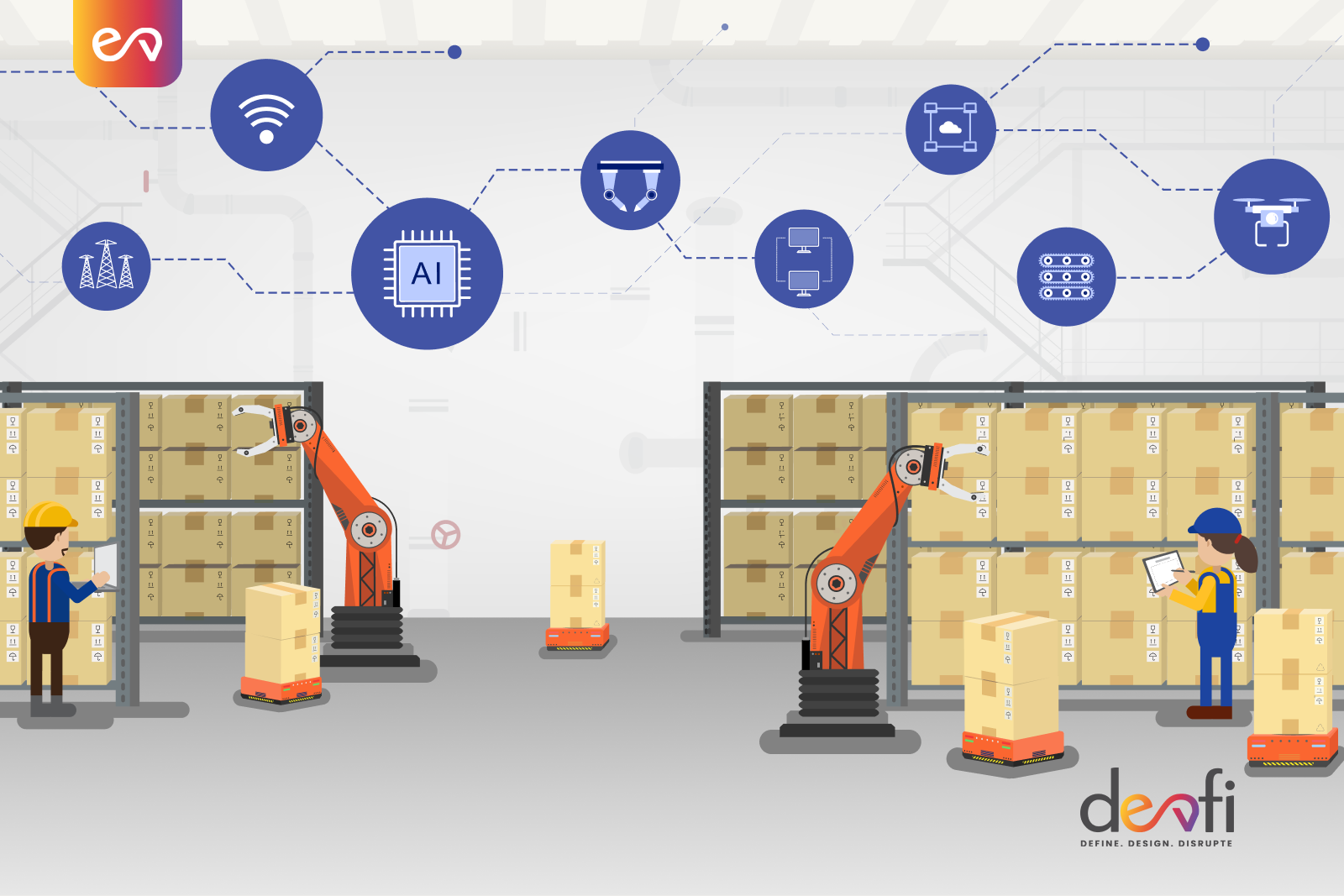Logistics and supply chains are going through a digital revolution which is the most important change in the industry. This remains a challenge for many transport companies because they need to be efficient and have a flexible supply chain to be successful. As companies look to optimize their processes and make decisions that will improve their operational efficiency, customer satisfaction, and economic and environmental costs, they are turning to new technologies – particularly Artificial Intelligence (AI) – to help them meet these goals.
The integration of new technologies, like AI, into the decision-making processes of companies, has been a challenge so far. But AI can help overcome this by automating and speeding up decision-making and pointing out areas for improvement.
Artificial intelligence is playing a major role in the logistics industry, providing companies with cutting-edge solutions for driverless vehicles and other innovative technologies. These advancements offer several benefits, such as higher efficiency in management tasks, shorter delivery times, more accurate forecasting models, and increased inventory accuracy. According to Gartner, the incorporation of advanced analytics, AI, and data science into commercial supply chain management applications will lead to a more efficient and informed business decision-making process resulting in generating more than 75% of market value.
Why AI is The Solution
The inefficiencies and wastage in the supply chain for most logistics companies have been exacerbated by the COVID-19 pandemic. Some of these hurdles include mismatched demand and supply, delays resulting from weak infrastructure, integrating B2B solutions from legacy applications with heavy code and several manual processes, lack of transparency, etc.
The use of AI is optimizing global supply chains. In the face of the COVID-19 pandemic, this has become an absolute necessity in order to maintain business continuity. By digitally transforming traditional processes, businesses gain increased visibility, cost savings, process automation, and analytical insights. Some of the most common solutions that AI offers to the logistics and supply chain industry include:
- Identifying the possible impacts of various supply disruptions and demand changes on the organization’s operations.
- Automating the mundane administrative tasks of the employees so that they can focus on other projects.
- Helping organizations in forecasting their customers’ demand and managing their warehouse efficiently with AI-powered data analytics.
- Building cost-effective, dynamic, and fully-automated models that solve real-world problems.
- Enabling visual inspection to identify and monitor the condition of products and manufacturing processes.
- Forecasting the future needs for supplies to efficiently manage inventory costs and easier warehouse management.
- Allows real-time route optimization, increased delivery efficiency, reduction in the waste of resources, and seamless freight management.
AI Drivers Impacting Logistics
1. Big data
Big data provides logistics companies with the ability to predict future events and trends with a high degree of accuracy. This information can be used to automate various processes within the company which will result in improved performance. In addition, using Big Data analytics can help improve transparency throughout the supply chain. Another crucial step for AI in logistics companies is to generate clean data. Many companies generate their data from different sources and people, which can make it difficult to improve data quality. Machine learning algorithms analyze past data, identify problems, and improve the quality of data to a level where the business is much more transparent. This is an essential step for AI in logistics companies as usable figures are vital to implementation.
2 Robotics
The incorporation of artificial intelligence into logistics has had a positive impact on the management of warehouse operations. Robots can identify, move, sort, and track inventories, enhancing the capabilities of the modern workforce. Robots equipped with deep learning algorithms allow for autonomous decision-making in processes that involve identifying, analyzing, counting, picking, and manipulating stock.
3. Predictive analytics
Predictive analytics solutions that utilize AI for demand forecasting and capacity planning are becoming increasingly popular. This allows organizations to plan ahead, resulting in lowered operational costs from requiring fewer transport vehicles and the capability to send them to areas where demand is anticipated. Furthermore, AI analysis can be used as a safeguard against potential risks.
4. Internet of things (IoT)
The potential for AI and IoT to keep everything connected is unprecedented. With embedded sensors and gateway connectivity, real-time tracking and remote monitoring of assets, personnel, equipment, and transactions are possible. AI and IoT also enable smart logistics solutions such as predictive asset maintenance, real-time fleet management, warehouse capacity optimization, route optimization, and more.
5. Self-driving vehicles
With the help of sensing technologies that work together to create a three-dimensional image of the vehicle’s surroundings, including traffic signals, barriers, road signs, and so on, AI powers the vehicle to detect and forecast changes in the environment. This high-tech driving assistance increases safety and efficiency.
Technology plays a big role in how efficient and effective logistics and supply chains can be. Incorporating new technologies, such as artificial intelligence, can help dramatically in streamlining these processes. Many businesses worldwide are starting to adopt AI into their daily operations in order to reap the benefits of increased efficiency, accuracy, and simplification of various tasks. Automating regular procedures decreases the likelihood of human error and makes things run more smoothly overall.
Are you looking to turn disruptive technologies to your advantage in this competitive environment? Contact Devfi.






